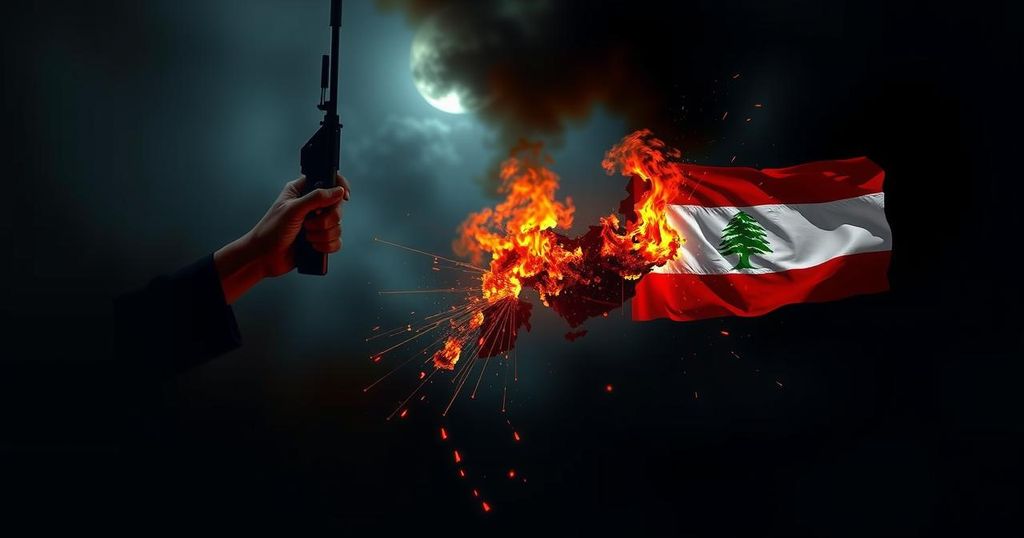US officials, including CIA Director William Burns, are in the Middle East to negotiate ceasefires in Gaza and Lebanon. Discussions focus on addressing the ongoing conflicts following a major Hamas attack on Israel. A proposed ceasefire could help stabilize Lebanon, while Gaza remains a challenging battleground due to the complexity of the situation and the involvement of multiple parties. Optimism regarding peace negotiations is tempered by real threats and the need for effective oversight.
Senior officials from the United States, including CIA Director William Burns, have initiated discussions in Israel and Egypt aimed at facilitating ceasefires in Gaza and Lebanon. In Cairo, Director Burns met with Egyptian President Abdel Fattah El Sisi to deliberate on ceasefire arrangements and the potential for a hostage exchange between Israel and Hamas. US envoys Brett McGurk and Amos Hochstein also landed in Israel, with McGurk focused on Gaza ceasefire negotiations while Hochstein addressed the situation in Lebanon amidst plans for a ceasefire agreement between Israel and Hezbollah. White House Press Secretary Karine Jean-Pierre confirmed that the US officials would engage in discussions covering multiple issues including hostages and regional tensions involving Iran. The diplomatic efforts are part of broader actions by the US, alongside Egypt and Qatar, to mediate an end to ongoing conflicts. Notably, US Secretary of State Antony Blinken made his eleventh trip to the region this year, signaling a sustained commitment from Washington before the impending elections. The likelihood of achieving a ceasefire in Lebanon appears higher compared to the situation in Gaza, where fighting escalated after the October 7, 2023 assault by Hamas that resulted in significant casualties and hostage situations. Since then, the conflict has intensified, particularly following Hezbollah’s retaliatory actions. A ceasefire proposal allegedly crafted by the US suggests an initial ceasefire of 60 days, which would allow the Lebanese army to deploy in areas currently controlled by Hezbollah, thereby removing their presence from southern regions near the Israeli border. The proposal aims to reinforce the principles outlined in UN Resolution 1701, established in 2006 to cease hostilities between Israel and Hezbollah, although it has not been fully enacted. Lebanon’s caretaker Prime Minister Najib Mikati expressed optimism about the potential for a ceasefire, though the acceptance of the proposal by both countries remains uncertain. Provisions within the ceasefire also include self-defense clauses, which may present issues for Israel to ensure adequate guarantees against potential provocations from Hezbollah, as both nations look towards facilitating indirect negotiations post the initial implementation period.
The ongoing conflicts in Gaza and Lebanon have escalated since the Hamas attack on Israel on October 7, 2023, which resulted in unprecedented violence and geopolitical ramifications. With over 43,000 deaths reported in Gaza and significant casualties in Lebanon, regional and international heads, particularly from the United States, have been intensively involved in diplomatic measures to rein in hostilities. The situation is complicated by ongoing threats from Hezbollah and the need to establish a stable peace framework, notably invoking established UN resolutions. Diplomatic efforts from the US, Egypt, and Qatar are critical in navigating these high-stakes negotiations aimed at ending the fighting between Israeli forces and militant groups in both territories.
In conclusion, the recent diplomatic outreach by US officials in Israel and Egypt underscores a concerted effort to negotiate ceasefires in both Gaza and Lebanon amidst a backdrop of escalating violence. While prospects for a ceasefire in Lebanon seem more optimistic, the complex dynamics of the war in Gaza present significant challenges. The proposed 60-day ceasefire plan aims to reinforce stability and facilitate further negotiations to address longstanding issues, echoing the necessity for international mediation in achieving lasting peace in the region.
Original Source: www.thenationalnews.com







